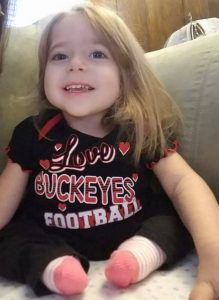
Have you ever considered how much the words we use reveal our attitudes and influence the attitudes of others? Ableism is the assumption that people with disabilities are inferior to those who supposedly do not have disabilities. For more information about ablism, view this link
The way we use language when we talk or write about individuals with disabilities is important. If you describe a woman as “wheelchair bound,” does that convey an image of a healthy, socially active, independent professional? If not, what did you think of when you heard that description? The word “bound” conveys images of limitations and restrictions. Those of us who use wheelchairs are certainly not “bound” to our chairs. If we do use wheelchairs, we get in and out of them in the blink of an eye, and we may choose them as an option for mobility because they are more efficient for us for a specific task or in a specific setting. We may choose other mobility options at other times.
How we describe ourselves and how other people describe us, including how parents describe their children who have SA/CRS, becomes important in the development of one’s self-image and confidence and also influences the attitudes of others in society. Take a look at these words and their alternatives:
Spanish language articles here
NO LONGER USED: RECOMMENDED:
conveys negative attitudes conveys more positive attitudes
| I have a “handicap”
I am “Handicapped”, “crippled”, “abnormal”, “deformed” (I have a deformity/defect.) She has “special needs” |
I have a physical disability or condition
I have a unique physical condition. The characteristics of my condition are…” My unique appearance I have physical challenges/differences |
| My child is “confined to” a wheelchair
“bound to” “limited by” “dependent on” (a wheelchair or crutches) I am “fortunate/lucky” to be able to walk. It’s a good thing I don’t “have to” use a wheelchair. |
My child uses a wheelchair for independent mobility.
has mobility options that include walking and/or using a wheelchair. Maximizes mobility and independence through use of a wheelchair I can walk. Some others with my condition may use wheelchairs for mobility. How we get around does not define our worth or value. |
| That woman “suffers from SA/CRS”,
“The teen is a “victim” of….”, “My mother is “afflicted by” |
“She has the condition of SA/CRS.”
“My child is diagnosed with SA/CRS.” |
| “My other children are “normal”
His friends are “healthy”. (to describe those who do not have a physical disability) |
“My other children do not have SA/CRS.”
“His friends do not have a disability.” “His friends are able-bodied individuals,” |
| That man is so “special”
“brave” “It is so inspiring that you can go shopping by yourself.” “superhuman” “courageous” “heroic” |
A person is not inspiring just because of a physical condition. It is not “inspiring” just to get out of bed in the morning. These words may be okay if the individual has actually performed a task considered brave or inspiring for any other individual to accomplish. When used to describe routine tasks of everyday life, these words are insulting because they indicate that nothing more is expected of the individual with a physical disability. All they have to do is exist for the purpose of making other people feel good. That’s not a message we want to send. |
| I was born with something “wrong,”
“What’s wrong with you?” |
I was born with a physical disability or condition
Do you mind if I ask you something about your physical condition? |
| She was “stricken” with ….,
She is “poor” “Unfortunately, she can’t walk.” He unfortunately was born with SA/CRS. |
“She is a person with a physical disability or condition.”
“She get’s around with ease using a wheelchair” |
| Handicapped (parking, bathroom, entrance) | Accessible parking, accessible bathroom, accessible entrance |
Here are some more links to explore about use of language and etiquette preferred by those with disabilities.
Disability Language
https://www.disabilityisnatural.com/people-first-language.html
http://sudcc.syr.edu/LanguageGuide/#faq-2
http://www.aucd.org/docs/add/sa_summits/Language%20Doc.pdf
http://rds.colostate.edu/languagehttps://hrecutah.org/resources/disability-language/
http://ncdj.org/style-guide/#defectbirthdefect
Disability Etiquette
http://www.miusa.org/sites/default/files/documents/resource/DisabilityEtiquette.pdf
What is inspiration porn?
For information about ‘inspiration porn” see this link:
Talking to Kids about Disability
http://www.pbs.org/parents/experts/archive/2013/06/how-to-talk-to-kids-and-parent.html
